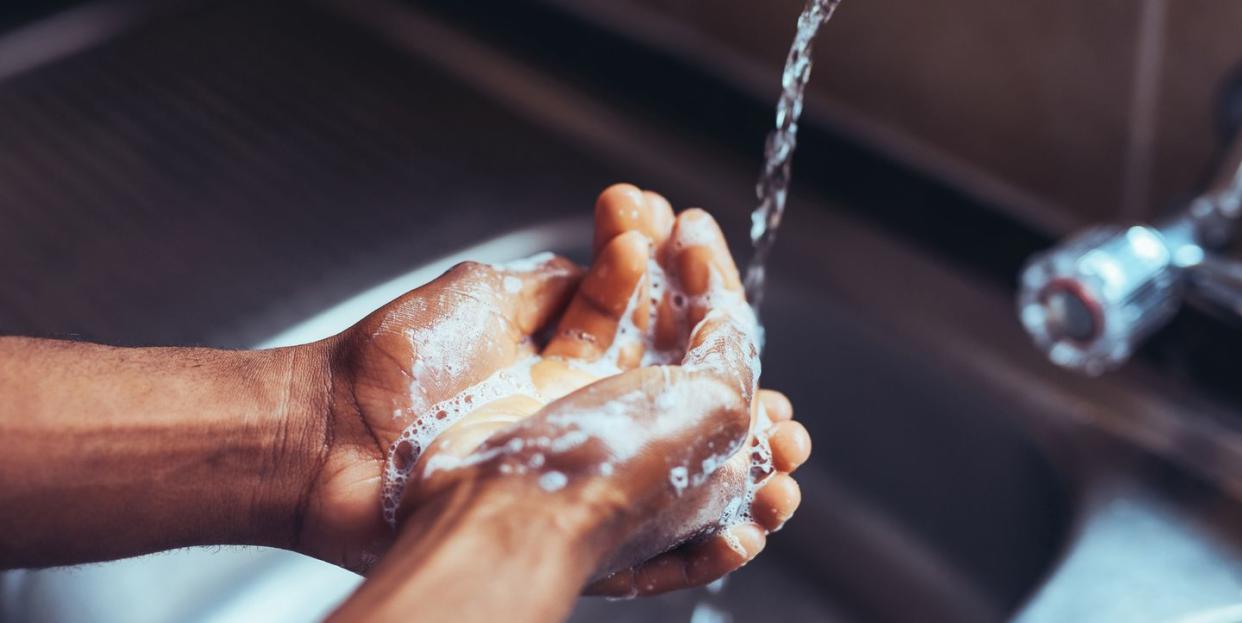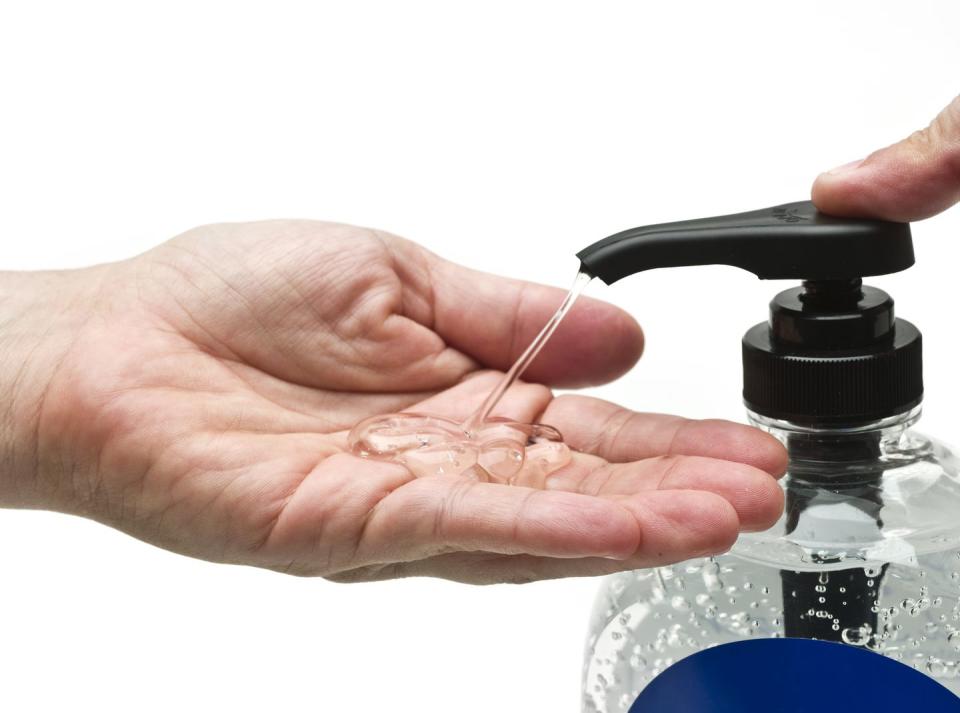10 tips to protect yourself from COVID-19

Concerned about coronavirus and how to keep your family safe? Try not to worry. There isn’t a coronavirus vaccine available yet, but to prevent infection, experts recommend doing the same things you would do to avoid getting the flu.
Follow our expert tips to guard yourself from contracting coronavirus:
What is the coronavirus?
Wuhan coronavirus, now known as COVID-19, was thought to originate in snakes, and now it’s looking like bats are the culprits. Researchers from the Wuhan Institute of Virology found that COVID-19 is around 96 per cent identical to a bat virus discovered in southern China. It’s also related to SARS, sharing 80 per cent of its genetic sequence. Both viruses can penetrate the lungs and cause serious respiratory effects.

Tips to protect yourself from coronavirus
Follow these tips to guard yourself from contracting coronavirus:
✔️ Wash your hands
When you get sick, you harbour many nasty germs and disease-causing pathogens on your hands. Fingernails and the skin between your fingers are ideal hiding places for all manner of nasties.
Always wash your hands after using the bathroom, blowing your nose, coughing, gardening, touching animals, and before eating. Use soap and water, and perfect your technique. Be thorough when you lather your hands. Don’t forget between the fingers and under the nails. Scrub for at least 20 seconds, rinse and dry.
✔️ Use hand sanitiser
It’s best to wash your hands whenever possible. In situations where you have no access to soap and water, use an alcohol-based hand sanitiser that has at least 60 per cent alcohol. Carry a small bottle with you to use at any time.
✔️ Don’t touch your face with dirty hands
Viruses can enter your body through your eyes, nose, mouth and other orifices. Putting dirty, contaminated hands on your face can lead to an infection. Don’t give these germs the opportunity, wash your hands before you touch your eyes, nose and mouth. You may also want to wash them before you use the bathroom, and afterward, of course.
😷 Studies show that wearing a face mask to protect you from pandemics or respiratory illnesses might offer some protection, but only in certain circumstances.
✔️ Avoid close contact with people who are sick
If it’s obvious that someone has an infection, help yourself to remain healthy by avoiding close contact that can spread viruses. Ditch the hugs, kisses, and handshakes. If someone is coughing and sneezing, move away and explain that you don’t want to get sick.
Likewise, if you’re feeling under the weather, you should stay at home and keep your friends and colleagues safe from whatever lurgy you’ve got.
✔️ Cover your mouth when you cough or sneeze
When you cough and sneeze, minuscule droplets, filled with thousands of viruses and bacteria, leave your body at around 100 miles an hour. They can land on surfaces, other people, and even stay suspended in the air for long periods. As you can imagine, this is an effective way of spreading infections.
Try to cough or sneeze into the crook of your elbow if at all possible to help prevent droplets from being released into the atmosphere. If you are unable to do this, use a tissue to cover your mouth, but using your hand also works if there is no alternative. If you use a tissue, always throw it in the rubbish or flush it down the toilet immediately and don’t forget to wash your hands afterwards.
✔️ Clean and disinfect objects and surfaces
Use bleach or disinfectant to wipe down kitchen and bathroom surfaces, the telephone, door handles, and kids’ toys. Once you realise how easily sneezes spread germs, you can see the importance of this step. Try to keep the bathroom and kitchen particularly clean and disinfected.
✔️ Boost your immune system
Your best defence against any infection is an active and healthy immune system. Make the following part of your routine:
🍎 Exercise: make sure that your immune system gets a boost by taking regular exercise. Aim for 30 to 40 minutes, three or four times a week.
🍎 Eat well: the foods you eat and what you drink are essential factors for immune function. Try to limit alcohol consumption to a moderate level to avoid vitamin deficiencies and lowered immunity.
🍎 Drink up: keep hydrated by drinking lots of water. Hydrated cells are better at fighting infection and flushing toxins, germs, and contaminants from your body.
🍎 Eat your five-a-day: fruits and vegetables contain phytonutrients, antioxidants, fibres, oils, and acids that keep you healthy and your immune system happy. Eat plenty and try to include as many different colours as you can to ensure you benefit from the full range of bioactive compounds they contain.
✔️ Combat stress
It’s no secret that stress is detrimental to health, and it can make you more susceptible to viral infections. Research shows that chronic stress increases the chance of developing an infection after exposure to a pathogen.
Use yoga and relaxation techniques such as self-hypnosis, or deep breathing to calm your mind. Try to share your troubles with others. Talking to a friend or a counsellor if you prefer can bring things into focus and help alleviate some of your stress.
If you’re feeling overwhelmed, consider learning about time management systems that ensure you optimise your working hours. Learning to say no can help you feel less stress and pressure.
✔️ Get enough sleep
Have you ever been ill and spent the whole day sleeping? Sleep helps your body to recover, lowers stress, and is an essential survival mechanism. Although the full mechanisms are not yet understood, you need sleep to repair and heal.
Make sure you get enough sleep, aim for eight hours. If you’re feeling ill, you should allow yourself as much sleep as your body needs.
✔️ Don't panic
Unless you have recently travelled to known infected areas overseas or been in contact with someone infected with the coronavirus, then treat any cough or cold symptoms as normal. The NHS advises that people should call 111 instead of visiting the GP’s surgery to prevent the risk of infecting others.
⚠️ For more advice and information on basic protective measures against the coronavirus, visit the World Health Organization website.
Last updated: 05-03-2020
You Might Also Like


